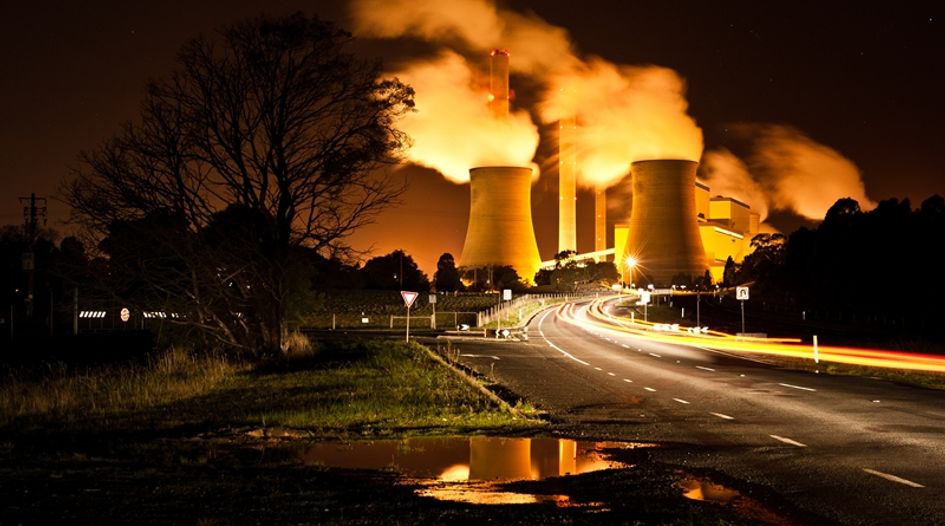Australian banks deny “virtue signalling†on climate plans
 By Douglas Thomson From GBRR


Loy Yang, a brown coal power station in Traralgon, Victoria (Credit: RobynCharnley on shutterstock)
Australia’s banking industry group has defended local big-four bank ANZ’s plans to reduce its exposure to carbon-intensive projects, as companies in the coal industry complain of the “growing trend†of banks to decline financing for new projects.
In a submission to an Australian parliamentary inquirypublished on 20 May, the Australian Banking Association (ABA) defended the notion of climate-related risk and pointed to its increasing acceptance by regulators around the world.
Australia’s three banking regulatory bodies – the Australian Prudential Regulation Authority (APRA), Australian Securities & Investments Commission (ASIC) and the Reserve Bank of Australia (RBA) – all also made submissions to the inquiry.
Parliament established the inquiry “into the prudential regulation of investment in Australia’s export industries†following a referral from Australia’s resources minister Keith Pitt, a member of the National Party, the junior partner in Australia’s governing coalition in February.
The inquiry came in response to Australian big-four bank ANZ’sannouncement in October that it was scaling back its investment in thermal coal, in a move it said would “position us well ahead of anticipated regulatory changeâ€.
ANZ said it would no longer bank new customers with more than 10% exposure to thermal coal, and by 2025 would be capping its exposure to existing customers with more than 50% exposure who fail to implement diversification strategies, reducing that cap to 25% in 2030. It also announced that by 2030 it would only be directly financing power generation from gas and renewable sources.
The policy came amid shifting shareholder sentiment on the issue, reflected a few weeks following the announcement at ANZ’s annual general meeting, when a resolution demanding less exposure to fossil fuels garnered almost double the support a similar resolution the previous year had achieved.
But the announcement prompted a furious reaction from the National Party, led by deputy prime minister Michael McCormack, the Nationals’ leader, who said the imposition of “largely euro-centric standards†was “sheer virtue signallingâ€.
“Banks are not, and should not try to become, society’s moral compass,†said David Littleproud, Australia’s agriculture minister and a former executive at Brisbane-based bank Suncorp. He said depositors should reconsider using banks that impose carbon targets.
The Nationals first pushed for an inquiry specifically targeting banks’ climate-related lending decisions, but pushback from the Liberals, the senior party in the governing coalition, resulted in a broader inquiry into financing of all export industries.
An “alarmism agendaâ€
Over 60 different organisations submitted to the inquiry before the 30 April deadline, including regulators, banks, and government departments, as well as pro-environment and pro-industry lobbying groups.
In its submission the ABA said that Australian banks’ climate action had come in response to initiatives by Australian regulators, including ASIC’s reference to the Taskforce on Climate-related Financial Disclosure (TCFD)’s disclosure framework in its guidance to company directors. It pointed to actions taken by governments and regulators in other countries, including the People’s Bank of China’s actions to expand recognition of climate risk, and the UK government’s intention to implement mandatory climate disclosures by large banks.
It also noted that APRA had recently announced its intention to “step up†its supervision of climate risk, and that it had issued a prudential practice guide on climate risk in 2019.
The ABA also argued that Australian exporting businesses – including fossil fuel-related ones – did not suffer from lack of access to finance, pointing to a government survey that found only 6% of businesses reported it as one of their key challenges.
Aside from regulators, it also argued that actions taken by investment managers were pushing banks to reduce their exposures to emissions, citing the Net Zero Asset Managers Initiative (NZAMI), whose 80 signatories collectively have over US$37 trillion in assets under management and have committed to achieving net zero emissions by 2050.
“These investors are major shareholders in, and the biggest funders of Australian banks and their ongoing investment is critical to the future strength and stability of the Australian banking sectorâ€, it argued.
Coal miner Yancoal argued that the extractive side of the coal industry was unfairly targeted by banks’ carbon policies, which they complained were having “direct and consequential†impacts on their business.
“The growing trend within the finance sector to refuse to provide services to companies that produce thermal coal or other fossil fuels is inconsistent with the principle that emissions should be accounted for when they are generated by the end user of a product,†it said.
Yancoal argued that the banks’ approach “discourages†efforts to develop lower emissions technologies. “It disregards any form of consistent, metric-based assessment of a proposal against Environmental, Social and Governance (ESG) criteria, and succumbs to an alarmism agenda promoted by activists.â€
Whitehaven, Australia’s largest coal producer, warned that withdrawing funding for coal projects in the absence of a transition pathway would land a “savage blow†on rural Australia, “not only shutting down direct investment and jobs but causing multiplier effects across suppliers and other businesses dependent on Australia’s large export industries.â€
It predicted that banks would subsequently withdraw funding from “every extractive industry in the resources sector†as well as methane-intensive agriculture.
ANZ’s big-four competitors Westpac, Commonwealth Bank of Australia and National Australia Bank all also submitted to the inquiry. Westpac echoed the ABA’s emphasis on the importance of investor expectations, citing BlackRock CEOLarry Fink’s recent public letter predicting “fundamental reallocation of capital†as markets factor in climate risk.
For more on this story go to: GBRR





